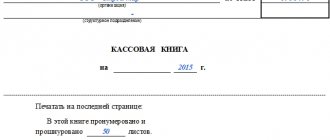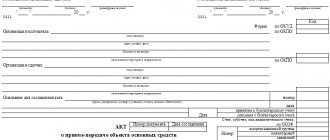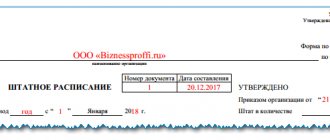This is the answer to the frequent question: irregular working hours - what is it? It is asked not only by employees, but also by employers. In the article, we not only examined what an irregular working day is under the Labor Code of the Russian Federation, but also told us how to establish it in an organization, for which employees there are restrictions, and what are the differences from regular overtime by order of the employer.
The main difference between this daily routine and overtime work is that the latter is limited in time: 120 hours per year according to the Labor Code of the Russian Federation, is paid at an increased rate, is involved in it only for production reasons, and this requires the written consent of the employee. And if a work schedule is established for him, which we discuss in the article, he can be involved in processing from case to case, and no consent of the employee is required.
Who can have irregular working hours?
The Labor Code does not define the categories of employees who may be assigned irregular working hours in 2021; recent news does not promise changes. The company determines the list of positions independently and records it in a special internal document. But there are some restrictions. Such a regime cannot be established for employees with maximum working hours in accordance with Art. 94 Labor Code of the Russian Federation. These include:
- employees aged 15-18 years;
- workers 14-18 years old who combine work and study;
- disabled people with a reduced time limit according to a medical report;
- employees employed in hazardous industries.
And also with reduced working hours in accordance with Article 92 of the Labor Code. This number includes:
- employees under 18 years of age;
- disabled people of group 1 or 2;
- working in harmful or dangerous working conditions (grades 3 and 4).
In the case of a part-time working day, irregularity can be established only in case of an incomplete week, but with a full working day.
Part-time job
There is no law prohibiting part-time workers from using irregular working hours. However, in practice, its establishment is possible only when the part-time worker is free from performing work functions on some days, since in another case a part-time working day has been introduced for him.
The latest changes regarding irregular working hours were made to Art. 101 of the Labor Code of the Russian Federation in 2021. Then the legislator introduced a new rule according to which employees working on a part-time basis can establish an irregular working day only if the following conditions are met:
- a part-time working week is established by agreement of the parties;
- this part-time work week is established with a full-time work day.
Thus, at the moment, an irregular working day, according to Art. 101 of the Labor Code of the Russian Federation in the latest edition cannot be established for part-time workers, unless it is a part-time working week.
How to install
First of all, the organization’s local regulations must establish a list of positions with irregular working hours and compensation procedures. Such a document is drawn up in free form, possibly on the organization’s letterhead. In addition to the list of positions, you must indicate the full name of the institution and its legal form.
Also, the condition regarding irregularity must be specified in the employment contract of a particular employee.
And in the order of admission it is necessary to reflect this condition in the column “Condition of admission, nature of work.”
How to install?
The Labor Code does not contain a list of positions for which an irregular working day may be introduced. Consequently, the employer who has decided to establish this regime must independently develop such a list. Most often, the following positions are included in the list:
- CEO;
- branch Manager;
- head of department;
- assistant manager;
- Chief Accountant;
- Head of warehouse;
- driver, etc.
The inclusion of these positions in the list is due to the fact that the employees replacing (occupying) them may most often be needed after the end of the working day. For example, the warehouse manager needs to accept cargo, the delivery of which is often delayed due to traffic on the roads. Accordingly, if the possibility of attracting an employee to work outside the established working hours is unlikely, then there is no need to establish an irregular schedule for him.
Once the list has been compiled, it, as well as the procedure for attracting employees to work in irregular hours, must be enshrined in a local regulatory act (Article 101 of the Labor Code of the Russian Federation). In most cases, an annex to the internal labor regulations or a separate provision on irregular working hours is drawn up and approved. The document must indicate the type and amount of compensation for work in this mode, that is, the number of days (at least three days) of additional annual leave for each position included in the list is specified, or the same duration is established for all. When drawing up a vacation schedule, additional vacation days must be taken into account.
The procedure for establishing an irregular regime for an employee depends on whether he is already working in the organization or is just being hired. When an “irregular” employee is just hired, he must be familiarized with the local regulations, which establish a list of positions with irregular working hours, the procedure for attracting work in this mode and the amount of compensation. The condition for irregular working hours is indicated in the employment contract, employment order, job description.
Note to HR
To establish an irregular working hours regime in an organization, you need to perform the following steps:
- justify the introduction of the regime;
- determine a list of employee positions;
- fix the regime and list of positions in the local act;
- include conditions on long working hours, guarantees and compensation in the employee’s employment contract;
- draw up separate orders for each position or employee who will have to switch to irregular working hours, and familiarize each employee with them.
If a special work regime is established for an employee who is already working, then he must also be familiarized with the list of positions and the procedure for attracting work in irregular hours. In addition, an additional agreement to the employment contract must be concluded with him, which will change the working hours and establish compensation. The agreement must contain the following information:
- date, number and place of detention;
- name of company;
- position and full name employee;
- details of the employment contract to which changes are made;
- new terms included in the contract.
Next, the employer must issue an order establishing an irregular working day for specific employees. The document is drawn up in any form, but it must indicate the date, number, place of publication, name of the organization, from what date and to whom irregular work hours are established, and the number of days of additional leave.
Once all the documents are completed, the employer, if necessary, has the right to give orders to the employee that it is necessary to stay late and finish the work.
Professions with 100% irregular work hours:
|
|
|
|
|
|
|
|
|
|
Benefits for irregularity
A person with such a work schedule is subject to the enterprise regime. That is, he cannot come and go whenever he wants. The start and end times of the working day for such an employee are the same as for everyone else. But sometimes, by order of the employer, he can be involved in additional work both before the official start of the working day and after its end. Please note that this rule does not apply to hiring an employee on a day off. Such work is equivalent to extracurricular work and must be paid at an increased rate. We wrote about this in detail in the article on calculating overtime.
Work beyond the norm is not paid additionally, but is compensated by providing additional days of vacation (at the request of the employee). The minimum number of days is three (Article 119 of the Labor Code of the Russian Federation). An enterprise can establish a larger number of days of additional leave, enshrining this in local regulations.
At the request of the employee, additional leave can be replaced by monetary compensation (Article 126 of the Labor Code of the Russian Federation). To do this, you need to make a written application.
What compensation is due?
Since information about an irregular schedule is significant and must be included in the employment contract, the employer must familiarize the future employee with this condition, as well as the compensation that he is entitled to for overtime working hours. In particular, according to Article 119 of the Labor Code of the Russian Federation, employees who work in this mode are entitled to additional paid leave. Its duration is determined by the collective agreement, but it cannot be less than three days.
An employee has the right to contact the employer with a request to replace additional leave for overtime with monetary compensation. This possibility is provided for in Article 126 of the Labor Code of the Russian Federation. However, providing this cash payment is the employer's right, not an obligation.
What is the difference between irregular working hours and overtime?
Employers often believe that by setting an employee an irregular working day, they can require him to constantly work after hours (outside the schedule). In other words, constantly be required to work overtime. But is it? It is necessary to understand and first compare two concepts: irregular working hours and overtime work. What do they have in common and what are the differences?
What is common is that in both cases we are talking about involving employees in work outside of normal working hours (both before the start of the scheduled work shift and after it).
And they differ in the following: for each case there is its own category of employees that can be attracted; they are hired to perform various types of work; and additional work is paid differently in each of the two cases.
So, in order.
Special cases
Does the law protect pregnant women from long hours? Unfortunately no. In this case, the Labor Code prohibits only overtime work. A pregnant woman has the right, for medical reasons, to ask her employer to transfer her to another position with a suitable schedule. The law sets a restriction for single mothers - their working hours must be reduced if the child is under 14 years old. However, there is no direct ban on the use of irregular work.
In any case, the employer does not have the right to exceed his authority and regularly involve employees in additional work. If their rights are violated, they can terminate the contract or appeal to the labor inspectorate, as well as to court.
Who can be involved in irregular work
To be involved in additional work within the framework of irregular working hours, the position of this employee must be included in the list of positions with irregular working hours. This list of positions is fixed by local regulations. As a rule, an appendix to the PTR. Also, the condition on irregular working hours must be specified in the employment contract with the employee or in an additional agreement.
Any employees can be hired to work overtime, except those who cannot be hired due to the fact that they belong to the preferential category of workers (pregnant women, minors, studying at the organization under an apprenticeship contract). There are also categories that can be involved in overtime work only if they do not have health problems. These are disabled people and women with children under 3 years of age. At the same time, they must be aware of their right to refuse to work overtime.
Positions for irregular hours
The law does not establish professions to which irregular work schedules cannot be applied. As mentioned earlier, the list is established in the company’s internal documents with the consent of the employer and employees.
But there are still some rules that need to be taken into account when compiling a list of professions. This applies to articles of the Labor Code 101, and. You cannot “put” professions on an irregular schedule that, by law, cannot be involved in overtime work. Some employers interpret the legislation literally: since it is prohibited only for overtime, it means that it is possible for other schedules. However, it is important to understand that such recruitment is illegal!
An irregular schedule cannot be set for the following categories:
- Pregnant women (Article 259 of the Labor Code of the Russian Federation).
- Minors under 18 years of age (Article 99 of the Labor Code of the Russian Federation).
- Employees at the time of training (Article 203 of the Labor Code of the Russian Federation).
Additional restrictions on overtime work, and therefore on the NWG, are also indicated:
- Women with children under three years of age.
- Single fathers.
- Guardians of minors.
There are professions with which it is difficult to establish an irregular schedule. For example, drivers. According to clause 14 of the Regulations on the peculiarities of the working regime and rest of drivers, certain categories of drivers are specified for whom irregular work may be introduced (drivers of passenger cars, except for taxis and expedition vehicles). In other cases, only the regime prescribed by law is possible. There are many professions with similar nuances, and it’s impossible to list them all in one article. Be guided by the legislative acts for the position you are interested in. In order not to break the law, before compiling the list, it would not hurt to consult with a lawyer and a human resources specialist of the enterprise.
How is additional work paid for irregular working hours and overtime?
In case of irregular working hours, the employer can keep records of the employee’s working hours in order to avoid disputes and questions. The need for him to periodically go outside the main schedule is compensated for in another way. According to Article 119 of the Labor Code of the Russian Federation, he has at least three calendar days of paid leave. The employer may establish by local regulations more time for vacation for irregular working hours. It is characteristic that the employee has the right to them after a year of work, completely regardless of whether he was involved in additional work in the current year or not. These vacation days can be added to the main vacation, taken off separately, or even compensated to the employee with money based on his application.
The situation is different with overtime pay. An employee is involved in it on the basis of a written order; this time is also clearly recorded in the time sheet, since:
- it is necessary to ensure that the employee is not involved in overtime for more than 120 hours per year and more than 4 hours in two days;
- You must pay for these hours at an increased rate. According to Article 152 of the Labor Code, the first two hours are at least one and a half times, the subsequent hours are double. This compensation is the minimum guaranteed to the employee. But the employer can also increase the amount of this compensation by defining it in its local regulations.
List of positions
The employer has the right to determine the list of employee positions for which irregular working hours may be established independently, fixing it in a collective agreement, agreement or local regulation adopted taking into account the opinion of a trade union, if there is one. This is stated in Article 101 of the Labor Code of the Russian Federation. Thus, the list of positions can be fixed, for example, in the Regulations on Irregular Working Days or formalized as an appendix to the Labor Regulations. Examples of the execution of local acts on approval of the list can be the order of the Federal Social Insurance Fund of Russia dated June 22, 2009 No. 146 and the resolution of the Board of the Pension Fund of the Russian Federation dated November 1, 2007 No. 274p.
When establishing irregular working hours, in addition to checking for compliance with the list of positions, it is necessary to take into account the nature of the work of individual groups of employees. In particular, it is impossible to establish an irregular working day:
- disabled people of group I or II;
- external or internal part-time workers.
At the same time, working part-time is not an obstacle to establishing an irregular working day for an employee.
Situation: is it possible to establish an irregular working day for a disabled person of group I or II?
No you can not.
Formally, the Labor Code of the Russian Federation and Law No. 181-FZ of November 24, 1995 do not directly prohibit the establishment of irregular working hours for disabled people.
At the same time, such categories of employees are entitled to reduced working hours, which indicates a limitation on the establishment of irregular working hours for disabled people of group I or II (Articles 92, 94, 101 of the Labor Code of the Russian Federation, Article 23 of the Law of November 24, 1995 No. 181- Federal Law).
Taking into account the above, in order to avoid disputes and litigation, it is not recommended to involve employees with disabilities of group I or II to work on irregular working hours.
Situation: is it possible for a part-time worker to have irregular working hours?
No you can not.
Part-time work is doing other work in your free time from your main job. The duration of working hours for such work should not exceed four hours a day (Articles 60.1, 282, 284 of the Labor Code of the Russian Federation).
Irregular working hours are a special work regime, according to which individual employees may be involved in performing their labor functions outside the established working hours, subject to a number of conditions (Article 101 of the Labor Code of the Russian Federation).
Since the length of a part-time worker’s working hours is limited by law, he cannot be assigned an irregular working day, regardless of how many hours a day the part-time worker works.
Situation: is it possible for an employee who works part-time to have irregular working hours?
Yes, you can.
Part-time working hours can be established for an employee by agreement between the parties to the employment contract (Article 93 of the Labor Code of the Russian Federation). The introduction of an irregular working day means that an employee performs work duties outside the working hours established for him, including outside part-time working hours (day or shift) (Article 101 of the Labor Code of the Russian Federation). Thus, for an employee who works part-time, the employer has the right to establish an irregular working day. The legitimacy of this approach is confirmed by Rostrud in a letter dated April 19, 2010 No. 1073-6-1.
For working irregular working hours, employees are entitled to compensation in the form of annual additional paid leave. The duration of such leave must be at least three calendar days, regardless of whether the employee works full-time or part-time. This follows from the provisions of Article 119 of the Labor Code of the Russian Federation.
How to apply for irregular working hours
The procedure for working beyond the main schedule during irregular working hours is not regulated by law. Since this regime is fixed in the employment contract with the employee, engagement can often be made orally and not recorded in any additional documents. However, in order to avoid disputes, it is better to use written notification in this case. The company can independently develop a system for registering additional work for employees with irregular working hours, as well as a system for recording additional time worked in separate timesheets, but this will not affect wages. The rules for engaging in irregular work can be prescribed in a local regulatory act, for example, this could be a provision on irregular working hours, a sample for 2021 could look like this:
Overtime compensation
Despite the excess number of hours worked, special conditions of remuneration or other material incentives are not provided for such employees. Instead of monetary compensation, additional leave for irregular working hours is provided for at least 3 days, and the maximum number is not limited. It is issued by an appropriate order.
The employee may instead ask for monetary compensation, calculated based on average earnings. As a rule, the organization does not budget for such expenses. The manager’s order may provide additional incentives for overtime or increase the number of days added to the main leave.
How to apply for overtime
The situation is different with the documentation of involvement in overtime activities.
As a rule, the need for overtime activities arises suddenly, and there is not much time left to prepare documents. Therefore, if the employee does not belong to a special category, and the need to leave is related to emergency situations, then it will be enough to issue an order to attract additional work and familiarize the employee with it. In this case, his refusal to withdraw may be accompanied by an administrative penalty.
If the need to leave outside the schedule is not of an emergency nature, then consent to leave must be obtained from the employee. This can be done both on the order itself and on the notice of involvement in overtime work, which can be issued in advance (see Notice of involvement in overtime work and order).
In the timesheet, overtime is indicated by the letter “C” and the number 04. Payment for it is made as follows: for the first two hours - at one and a half times, for subsequent hours - at double. This is the minimum compensation established by the Labor Code.
How many overtime hours are allowed?
Unlike overtime work, which has permissible time limits, the maximum number of overtime hours is not regulated by law. The employer has the right to involve an employee not on a regular basis, but occasionally, in performing duties for more than 40 hours a week, but how long such episodes can last is not determined. This criterion can be included in the order, but it remains at the discretion of the employer.
How are irregular days counted?
The working time sheet does not contain a separate column for entering overtime hours. This is not required by either personnel officers or accountants, since payment for additional hours is not provided. The timesheet indicates only the standard working time, and additional leave is applied regardless of the days actually worked.
How often can you be hired additionally during irregular working hours?
The concept “occasionally”, used to determine the frequency of involvement in additional work during irregular working hours, is not disclosed in the current legislation. Therefore, it is worth proceeding from the etymology of this word, which means a separate incident, random event or circumstance. Therefore, constant, daily work outside normal working hours will not correspond to the concept of irregular working hours. Thus, the frequency of involvement in additional work as an irregular worker should be assessed individually.
But can there be overtime work during irregular working hours? First of all, it is worth noting that if an employee, whose employment contract stipulates irregular working hours, is called to work on his day off, then such work is paid to him, according to the law, in an increased amount, regardless of his normal working day or unstandardized.
If you are involved in an additional function on a working day beyond the schedule, you must remember the main criteria for an irregular working day: occasional involvement and additional work within the framework of your work function. Thus, we can conclude that involvement in additional work within another function, as well as involvement of a regular nature, requires increased payment in order to avoid disputes with inspection bodies and the employee himself.
Nuances
Despite all the attractiveness of this regime, its use is still due to some features that employers often do not focus their attention on. This can lead to conflicts with employees. In order to avoid this, the employer should remember the following nuances.
Firstly, the employer is obliged to provide the employee with additional days of annual paid leave, even if this employee has never been involved in work after the end of the working day. Since the provision of additional leave does not depend on the mandatory presence of overtime, but on the very fact of establishing an irregular working day for the employee (letter of Rostrud dated May 24, 2012 No. PG/3841-6-1).
The employer also independently determines the amount of additional leave, which cannot be less than three days. Labor legislation does not contain restrictions on the maximum number of days of additional leave.
note
An employer may not formalize an irregular working hours regime in an organization, but still systematically involve employees in work beyond the established working hours. In this case, bodies that supervise and control the labor sector or judicial authorities will be able to consider this as overtime work, for which appropriate compensation is due.
It is worth noting that for profit tax purposes, expenses for paying for annual additional leave lasting at least three calendar days are taken into account in actual amounts, unless the procedure for providing such leave, provided for by the current legislation of the Russian Federation, is violated (letter of the Ministry of Finance of Russia dated January 28, 2005 No. 03 -03-01-04/1/38, dated January 13, 2006 No. 03-03-04/2/5, dated December 20, 2006 No. 03-03-04/1/846, dated January 29, 2007 No. 03-03-06/4/6).
Secondly, based on the provisions of labor legislation, workers under the age of 18, pregnant women, disabled people, women with children under three years of age, fathers raising children without a mother, etc. cannot be recruited to work in irregular hours. , in which such employees work, may be included in the list of positions for which irregular working hours are introduced. In this case, the employer simply does not need to impose irregular hours on these employees.
Thirdly, if an employee is assigned part-time working hours, then it is also possible for him to have an irregular working day. Thus, Rostrud, in a letter dated April 19, 2010 No. 1073-6-1, explained that before changes were made to Article 101 of the Labor Code (until October 6, 2006), when determining an irregular working day, it was about the possibility of being involved in work outside the normal duration of working hours. Therefore, in accordance with the version of the Labor Code in force at that time, part-time workers could not be assigned an irregular working day. However, taking into account the amendments made to Article 101 of the Labor Code, it is assumed that part-time workers are not prohibited from establishing irregular working hours.
Fourthly, as mentioned above, the employer can give the employee a verbal order that he needs to stay late. However, in order to avoid controversial situations (for example, an employee ignores verbal orders), such an order is best made in writing in any form.
Fifthly, this regime does not give the employer the right to involve employees in work on weekends and holidays without their consent. This is due to the fact that days off are provided to all employees regardless of their working hours, and they can only be involved in work on weekends and holidays with their written consent (Articles 111, 113 of the Labor Code of the Russian Federation). In this case, such work must be paid at least double the amount or, at the request of the employee, he may be given another day of rest.
L.F. Shtatnova
, expert on labor legislation, for the magazine “Normative Acts”
Help in solving practical situations
Every fifth accountant in Russia is well acquainted with the Practical Accounting magazine, which has published articles with specific solutions and recommendations since 2001. The publication is now also available in electronic form. Find out how to get full access to all materials >>
If you have a question, ask it here >>
Introductory information
The Labor Code sets clear boundaries for the working hours during which employees must perform their duties.
As a rule, this is 40 working hours per week, which, with a five-day working week, gives 8 working hours per day. You can make sure that an employee works outside of this time in two ways - by involving him in overtime work, or by introducing irregular working hours.
The first method entails mandatory payment for each hour of overtime, and the total number of such hours is limited to 120 per year and four over two consecutive working days (Article 99 of the Labor Code of the Russian Federation). But no such restrictions have been established regarding irregular working hours, which makes it very attractive for the employer.
Shelf life
The management of the enterprise, in addition to issuing administrative and other personnel documents, is obliged to ensure their safety for a certain period. The storage period for documentation is established by the relevant regulations.
An order on irregular working hours belongs to the category of personnel documents, since it reflects the labor relationship with the employer. The storage and archiving of such documents after their expiration is regulated by Law No. 125-FZ of October 22, 2004.
It should be noted that the provisions of this legal act are mandatory for both private commercial organizations and budgetary institutions.
The storage period for an order establishing an irregular schedule for individual employees is regulated by clause 8 of Section II of Rosarkhiv Order No. 236 of December 20, 2019. It is limited to five years. However, if workers were involved in harmful and dangerous working conditions, then the storage period increases to 50 years or 75 if they were registered before 2003.
Thus, in order to establish an irregular schedule for employed employees, an additional agreement should be issued to the employment contract and a corresponding order should be issued. In this case, the document is drawn up in any form, since there is no unified order form. Additional hours worked by an employee may be reimbursed through paid time off or cash.
It should be remembered that the provision of compensation for public sector employees, employees of government agencies, law enforcement agencies, for example, police officers, is established by law, and for commercial companies by their local acts.








